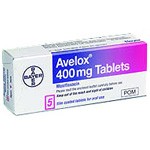Understanding Meningitis: Causes, Symptoms, Prevention, and Treatment


Meningitis is a potentially life-threatening condition characterized by inflammation of the meninges, the protective membranes that encase the brain and spinal cord. The onset of meningitis can be sudden and severe, often leading to neurological damage or death if not promptly treated. The disease affects individuals of all ages, though it is particularly prevalent among infants, young children, teenagers, and the elderly. The global burden of meningitis remains significant, with outbreaks regularly occurring in certain regions, such as the African meningitis belt.
Meningitis has profound social and economic impacts, particularly in low-resource settings. It can result in significant healthcare costs, long-term disability, and loss of productivity. Early detection and intervention are critical to preventing the most severe outcomes. Awareness campaigns and improved access to vaccines and healthcare have been instrumental in reducing the global burden of the disease.
What is the cause of meningitis?
The causes of meningitis are varied and include infectious and non-infectious agents. Bacterial meningitis, which is the most dangerous form, commonly arises from bacteria such as Streptococcus pneumoniae, Neisseria meningitidis, and Haemophilus influenzae. These bacteria can infiltrate the bloodstream and cross into the central nervous system. Viral meningitis, although less severe, can be distressing and is primarily caused by enteroviruses, herpes simplex virus, and others.
Fungal meningitis typically affects immunocompromised individuals and is often caused by Cryptococcus species. Parasitic meningitis, though rare, is notably severe when caused by Naegleria fowleri. Non-infectious causes include autoimmune disorders, certain medications, and cancers that trigger aseptic meningitis.
Emerging pathogens and antibiotic-resistant strains of bacteria present new challenges in the management of meningitis. Research into understanding these evolving threats and developing new diagnostic and therapeutic strategies is ongoing and remains a top priority for global health organizations.
How can you prevent meningitis?
Prevention of meningitis hinges on vaccination, public health initiatives, and individual practices. Vaccines such as those for Haemophilus influenzae type b (Hib), Neisseria meningitidis, and Streptococcus pneumoniae have dramatically decreased the incidence of meningitis in many countries. Maintaining high vaccination coverage in communities is vital to prevent outbreaks.
In addition to immunization, public health education plays a critical role. Encouraging regular hand hygiene, proper respiratory etiquette, and minimizing close contact with infected individuals helps reduce transmission. Prophylactic antibiotics may be provided to close contacts of someone diagnosed with bacterial meningitis to prevent the disease from spreading.
Travelers to regions with a high incidence of meningitis, such as sub-Saharan Africa, are advised to receive the appropriate vaccines before their journey. School health programs and community awareness campaigns also contribute to controlling the spread of the disease.
What are 5 symptoms of meningitis?
The clinical presentation of meningitis can vary, but five hallmark symptoms commonly signal its presence. These include a sudden high fever, a severe and persistent headache, neck stiffness that limits the range of motion, nausea and vomiting, and photophobia, where exposure to light exacerbates discomfort. Additional symptoms might include confusion, seizures, and sleepiness. In infants, unique signs include poor feeding, irritability, and a bulging fontanelle.
Complications of untreated meningitis can be devastating and may include hearing loss, cognitive impairment, motor disabilities, and epilepsy. Therefore, recognizing the early warning signs and seeking immediate medical attention is critical for improving outcomes.
How is meningitis spread?
Transmission of meningitis varies with its etiology. Bacterial and viral forms are often spread through respiratory droplets expelled by coughing, sneezing, or kissing. Close living conditions, such as those found in dormitories or military barracks, facilitate the spread of infectious agents.
Fungal and parasitic meningitis typically result from environmental exposure, not person-to-person contact. Inhaling fungal spores or swimming in contaminated freshwater can lead to infection. Non-infectious meningitis is not contagious and arises from internal medical conditions or adverse reactions to treatments.
Community surveillance and timely reporting of outbreaks are essential components of controlling the spread of meningitis. Health authorities may implement vaccination campaigns and quarantine measures to prevent widespread transmission.
The role of Avelox in the treatment of the condition
Avelox (moxifloxacin) is a fluoroquinolone antibiotic known for its broad-spectrum activity and effectiveness against certain drug-resistant bacteria. Though not traditionally the first choice for meningitis, Avelox has proven useful in specific circumstances where conventional antibiotics fail or when patients are allergic to standard beta-lactam therapies.
Moxifloxacin penetrates the blood-brain barrier effectively, which is crucial for treating central nervous system infections. It demonstrates potent activity against Streptococcus pneumoniae strains resistant to other antibiotics. However, careful consideration and susceptibility testing are essential before employing Avelox, as not all pathogens responsible for meningitis are sensitive to this antibiotic.
Furthermore, the use of fluoroquinolones like Avelox must be judicious due to potential side effects, which can include tendonitis, peripheral neuropathy, and effects on blood sugar levels. Physicians must weigh the risks and benefits when prescribing this medication for meningitis.Ongoing studies continue to explore the efficacy of moxifloxacin and other novel antibiotics in the treatment of meningitis. Multidrug-resistant infections remain a serious concern, and developing safe and effective alternatives is critical.
Conclusion
Meningitis remains a global health challenge with the potential for severe outcomes. Awareness of its diverse causes, vigilance for its classic symptoms, and rapid medical intervention are pivotal to improving patient survival and minimizing long-term complications. Preventative strategies, particularly vaccination and public health education, have significantly reduced the incidence of certain types of meningitis.While Avelox offers an alternative treatment pathway in complex cases, its use should be reserved for situations where standard therapy is contraindicated or ineffective. Ongoing research and the development of new vaccines and antibiotics continue to enhance our capacity to combat this formidable disease. Patients, healthcare providers, and public health officials must work in concert to mitigate the risks associated with meningitis.
Medically Reviewed by Dr. Rabeea Aboufakher, MD
(Updated at May 10 / 2025)

